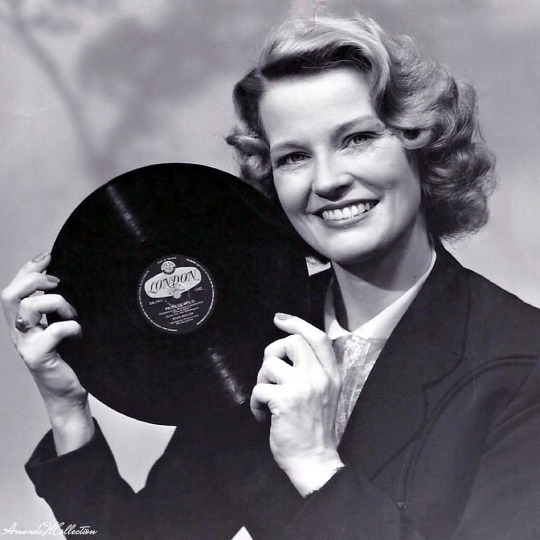#joan regan
Text
Week ending: 7 April
I'm hurtling towards real time - or at least closer to real time than I've been for a little while with this project, and we're getting spring-like. Perhaps that's why we're getting songs about blossom?
Cherry Pink (And Apple Blossom White) - Pérez Prado (peaked at Number 1)
I'll let you in on a secret. I have known and loved this song for some time. So you are about to get a load of gushing. Because this song rocks. If you do not know it, go listen to it. I'll wait. I could listen to this song for days.
Pérez Prado, if the name didn't give it away, is a Latin musician by trade, a bandleader from Cuba, who picked up this song, originally a French track by French-Spanish songwriter Louiguy, who also wrote La vie en rose for Édith Piaf. So it's a song with an interesting history.
I listened to the original for contrast, and it's still got quite a Spanish / Latin vibe, with a clave rhythm throughout. And lyrics! I had no clue - it's a song from 1950 about young love leading to marriage and kids, laced through with a metaphor about two trees growing together. It's slinky, with its rhythm, but still reasonably sedate.
What isn't sedate is Pérez's version! Immediately we've got blaring horns, blasting out a few brash, brassy notes, before a solo trumpet cuts through, building to a peak before woozily coming down, slurring all the way and slowing down, just minutely, so that the song threatens to lurch to a stop before continuing. If you've ever wondered what a drunk trumpet sounded like, check this out.
And then we settle into a proper sexy Latin beat, with the trumpet taking over the lines that were sung in the original, and the horns forming a sort of response to the trumpet. There's also a deep, honking horn that sometimes cuts in underneath, in a way that should be comical but kind of works. I was about to say it reminds me of a bit of Mambo No. 5, and then I looked and guess who did the original Mambo No. 5 that the Lou Bega version was based off? You guessed it, one Mr. Prado.
There's one single vocalisation in the middle, which is just a man shouting "hyuurgh". Perfect energy for the song, which keeps throwing in other little, quieter segments, before coming back to its high energy, major-key refrain. It keeps you on your toes, and honestly, it's just some of the most in-your-face brass we've had for a while, and I love it.
This is a sexy song. Imagine dancing with somebody to this, doing something slinky with your hips, pulling in close to your partner on all those woozy trumpet bits and just lingering as it slows down, almost holding your breath...
Yeah, I don't need to explain myself. This is my blog.
Prize of Gold - Joan Regan (6)
Well. Following Pérez was always going to be a tough act. But Joan really makes it easy for me to have an opinion. Because this song, I hate to say, is lame.
I'm not helped here by my particular recording, which is fuzzy and low-quality, making Joan sound like she's singing in the rain. But I think even without the rain sound, she would sound kind of glum as she starts off. And fair enough, they're not super exciting lyrics. I would be glum too, if I was singing trite nonsense like this.
I mean, we open on Why do people crave for fortune, / Everything their eyes behold? / What’s the good of fame and fortune? / Love is the prize of gold. Which is a sentiment I am behind. I too think there are more important things than money. I too think that love is pretty important. And I do think good songs to get out of it - I'm thinking in particular of the Beatles with Can't Buy Me Love with its slightly garbled but definitely anti-materialist message, or even Lorde with Royals, if you want a more recent example. But those songs have one thing in common, namely that they're fun. And this song, sadly, is not.
It's just slow, and Joan sounds kind of staid and sad. She's singing about the joys of love, but she makes them sound kind of like a reliable investment, or something, as she sings about how You have to have a heart to sing to / After all your dreams grow old and how If we have our love to cling to / We have the prize of gold. I get it, it's supposed to be romantic. But dreams growing old and having to cling to your love is hardly a glittering advertisement.
It's all a very similar tune and dynamic throughout, too, and I think that's part of the issue. I liked Cherry Pink because it kept throwing different sections at me, with different moods and different speeds and different instrumentations. And you don't get that here. Here you have lyrics - which should theoretically be an advantage for this song over Cherry Pink - and yet somehow you've made a song that says less than the instrumental did.
I'm trying to see what people saw in this, and I do think that these kind of anti-materialist "money and fame isn't the answer" songs can come about in times of economic hardship. I'm thinking of the whole punk DIY ethos, here, as well as Royals, from the depths of the financial crisis. And I guess Britain was recovering from World War II, but there was maybe still a memory of financial hardship linked to the costs of war? I mean, rationing had only ended half a year ago, so maybe this is speaking to that. Or perhaps it's more of a universal theme, beloved by grannies everywhere, and I'm talking nonsense. Who knows?
I think I've made my stance clear, and the reasons for it. Not much more needs saying, except please go listen to Cherry Pink. It's so good, a genuine ought-to-be-classic.
Favourite song of the bunch: Cherry Pink (And Apple Blossom White)
0 notes
Photo

Joan Baez and Bob Dylan, The Rolling Thunder Revue—Montreal Stables, Montreal, QC, Canada, December 1975 © Ken Regan.
#Joan Baez#Bob Dylan#Baez and Dylan#The Rolling Thunder Revue#Rolling Thunder Revue#Montreal Stables#Montreal#Quebec#Canada#1975#1970s#Ken Regan
824 notes
·
View notes
Text

poor guy
#had this image saved for so fucking long#simon twd#negan#regan#< technically??#twd#the walking dead#joans art
544 notes
·
View notes
Photo
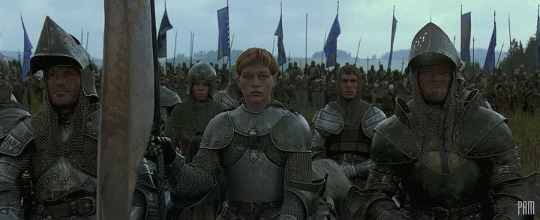

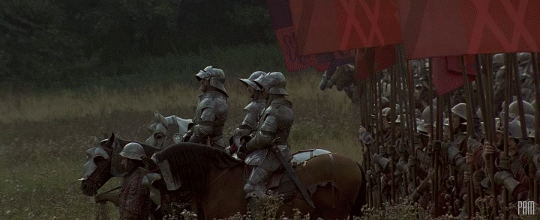

The Messenger: The Story Of Joan Of Arc (1999)
#1999#gif#film#movie#history#The Messenger#The Story Of Joan Of Arc#Luc Besson#Tcheky Karyo#Jean de Dunois#Jean d'Orleans#Milla Jovovich#Joan Of Arc#Jeanne d'Arc#Vincent Cassel#Gilles de Rais#Andrew Birkin#John Talbot#Vincent Regan#Buck#Hundred Years' War#Orleans#France#England#knights
30 notes
·
View notes
Text

#joan baez#women in rock#rock and roll hall of fame#bob dylan#rolling thunder revue#ken regan#hatshop#1970s#b&w
50 notes
·
View notes
Text
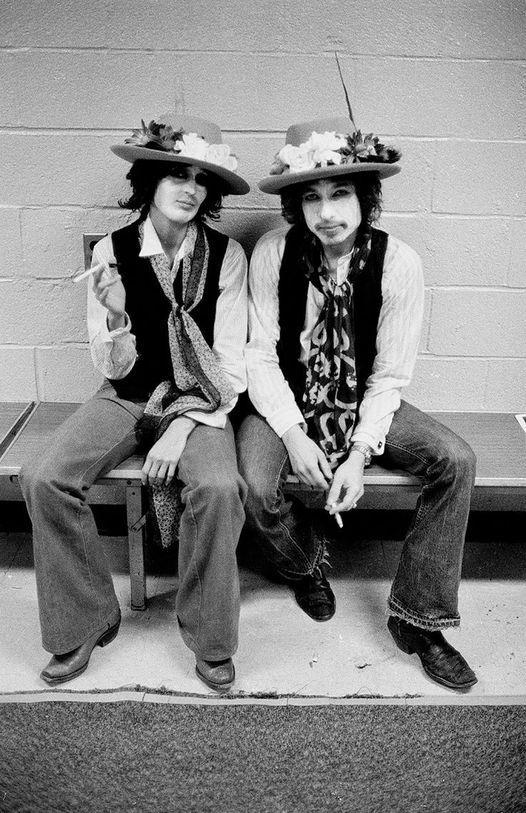
Joan Baez and Bob Dylan backstage on the Rolling Thunder Revue tour, by Ken Regan (1975)
3 notes
·
View notes
Text
Video Revew: Les Misérables, 3rd National Tour, 2000, Act I (long)
In honor of Barricade Day, I’ve decided to re-share the review I wrote some time ago of an outstanding complete Les Mis performance from yesteryear. The multi-part upload I originally reviewed has been taken down, but the whole performance can still be seen on YouTube in a single video here.
This performance by the US 3rd National Tour (a.k.a. the Marius Company) was filmed at the Ahmanson Theatre in Los Angeles, February 7, 2000.
Main Cast
Jean Valjean: Ivan Rutherford
Javert: Stephen Bishop
Fantine: Joan Almedilla
Thénardier: J.P. Dougherty
Mme. Thénardier: Aymee Garcia
Marius: Tim Howar
Enjolras: Kevin Earley
Éponine: Sutton Foster
Cosette: Regan Thiel
Grantaire/Bamatabois: Trent Blanton
Young Cosette: Stephanie Mieko Cohen
Gavroche: Christopher Carlson
“Work Song,” “On Parole,” “Valjean Arrested, Valjean Forgiven,” “Valjean’s Soliloquy”
Ivan Rutherford’s Valjean lives up to all my positive memories of the three times I saw him onstage. His voice is excellent for the role: bright, rich and mellow, yet with a hint of grit that suits the convict, and effortlessly capable of both sweetness and power. Acting-wise, he’s subtler than some other convict-Valjeans, but still portrays a fully realized, nuanced and engaging character. Other actors are more aggressive to Javert and more visibly ecstatic on “Freedom is mine…” but Ivan’s portrayal seems a bit truer to Hugo’s Valjean, who was always a quiet, self-contained man and whose hardening from his years in prison makes him even less inclined to show emotion. Yet his anger becomes clear with his increasingly fearsome responses when others reject him. The growing darkness in him is evident when he shouts at the innkeeper’s wife, especially with how delicate, polite and frightened she’s portrayed as being. Then at the Bishop’s house we see him disturbingly become “a thief in the night,” as he plots the theft of the silver in a sneering, calculating tone, and then bows his head before the Bishop in feigned abject gratitude, only to steal the silver with a sneaky, quietly growled “…flight!” rather than a wild shout. The theft definitely feels like a premeditated, malevolent act rather than an impulsive, desperate one. Yet he still conveys sympathy-earning vulnerability too, with the abject, beaten dog-like fear he shows when the Bishop first approaches him and when he thinks he’s about to be sent back to the galleys. And at the end, he gives us a truly impassioned Soliloquy, full of rage, anguish, confusion, and ultimate determination to change.
Stephen Bishop was my first Javert and his performance here is exactly the way I remember him. Tall and imposing, with a rich, robust baritone voice, and just the right attitude of dignified condescension. Well I remember his snide, disdainful “No” in response to Valjean’s ‘Yes, it means I’m free!” I remember that Arlene C. Harris, the author of the Les Misérables sequel series Pont-au-Change, wrote in her review of this cast that his Javert was too smug, too much like ‘Gaston (from Beauty and the Beast) in a police uniform,” and I’ll admit I can see a little of that here. But at the same time, he’s very professional and avoids needless aggression. He’s the only Javert I’ve seen so far who doesn’t intimidate Valjean with his nightstick on “Do not forget me, 20601!” and despite his disdain, he hands Valjean his yellow passport in a civil way, not playing the games with it (e.g. smacking it against his chest, pulling it out of his reach at first, or dropping it for him to pick up) that other actors do.
The Bishop has a very nice voice and gentle, serene bearing, though he doesn’t make as strong an impression as some others.
The 3rd National Tour was always known for its outstanding ensemble and they do indeed seem excellent so far. One thing that stands out for me, though, is their subtlety. They don’t do too much shouting when Valjean turns aggressive, nor treat him with too much physical brutality. Compared to some other productions in more recent years, the crowd scenes are definitely understated here. But it works: sometimes less is more. That said, the warders in Toulon have a more brutal edge than in some other productions, noticing every time a convict stops working and either kicking him or shoving him with a gun butt. Even later performances in this same tour toned that business down.
If I’m not mistaken, the short and stocky yet gorgeous-voiced convict who sings “The sun is strong…” is Randal Keith, who at the time would have been understudying Valjean, but later became the final Valjean of both this tour and the original Broadway production, as well as the first Valjean I ever saw in 2001.
“At the End of the Day,” “I Dreamed a Dream,” “Lovely Ladies”
Joan Almedilla was my first Fantine, and while she’ll never be my favorite in the role, I do like her. In its lower and middle registers, her voice is warm, sweet, and excellently suited to the role. Unfortunately, when she belts in the upper register, her tone becomes nasal and strident, and this annoying quality becomes more pronounced as Fantine falls into poverty and disgrace. Still, her Fantine is solidly sung and effectively acted. After a soft-spoken, frightened factory scene, she vividly depicts Fantine’s tragic transformation, infusing “I Dreamed a Dream” with raw anguish and desperation, and then endures her slow degradation through “Lovely Ladies” until it culminates in her pitifully gagging from the strong drink the ladies give her and desperately stumbling into her laughing client’s arms, the re-emerging to sing a truly fierce, bitter final verse, her former ladylike manner gone. My only quibble about her acting is that, apart from holding her chest/stomach as if in pain (although that’s something, at least), she doesn’t do much to convey her declining health.
I like the way she kisses her locket after “He filled my days with endless wonder.” It shows that the locket was a gift from Tholomyes and makes the fact that she still wears it symbolize her dream that someday he’ll come back to her, which she renounces once and for all when she sells it.
Ivan’s Valjean has excellent new dignity in his brief appearance as Monsieur Madeleine.
The ensemble work is once again outstanding. The Foreman is just as imposing and nasty as he should be, while the Factory Girl is excellent in her initial feigned friendliness as she first peers at Fantine’s letter and in her true venom as she reveals her secret. The poor sick whore in “Lovely Ladies” seems genuinely agonized and the Pimp is a nasty piece of work, grabbing her by the hair to force her to keep selling.
You’ll notice a certain tall, thin young woman whom the camera subtly yet repeatedly focuses on, particularly during “Old men, young men, take ‘em as they come…” where she’s the fierce-looking whore in yellow striking an animalistic pose on the ground. That’s a pre-stardom Sutton Foster, whom we’ll see later in this performance as Éponine.
“Fantine’s Arrest,” “The Runaway Cart,” “Who Am ?”
Joan’s Fantine is still compelling, even though her voice still tends to sound nasal. Her fear of Bamatabois and her screams of pain as he abuses her are heartrending, as are her pleas to Javert and her anguish over Cosette, but she also shows spirit and ferocity when she fights Bamatabois off and in her furious “M’sieur, don’t mock me now, I pray!” Yet again, though, she doesn’t make any real attempt to seem sick until she faints as the constables pick her up. Although I notice that just before that happens, she reaches out her hand – possibly implying that she’s already slipped into delirium and seeing Cosette.
Trent’s Bamatabois is excellently nasty. The way he erotically strokes Fantine’s arm but then roughly yanks her to him makes it clear why she wants to escape, and his subsequent throwing her around and grabbing her by the hair is brutal.Stephen’s Javert still sings with a handsome, imposing baritone voice and cuts an appropriately stern, stolid figure. Ivan’s Valjean is dignified and generally reserved at this point, but still believable. It’s interesting that on “…that I am not your man?” he holds out his hands for Javert to handcuff then and there if he sees fit. His “Who Am I?” is excellently sung and conveys his inner turmoil subtly yet convincingly. By the way, is it just me, or does he look a little bit like Ernest Hemingway? Of course this is irrelevant to his portrayal of Valjean, but I just happened to notice it.
“Fantine’s Death,” “Confrontation,” “Castle on a Cloud”
Joan’s Fantine is poignant to the end. I like that she doesn’t lie still at the beginning, but turns feebly yet restlessly from side to side: it enhances our sense of her pain and delirium. Her deathbed desperation to ensure Cosette’s future is vivid and moving.
Ivan and Stephen’s “Confrontation” is very effective, with both initially remaining calm and dignified, but the tension on both sides gradually growing until it literally bursts when Valjean smashes the chair. They both sing outstandingly too. I also like the way Valjean’s threatening Javert with the chair leg is handled – instead of being intimidated, Javert just points his nightstick right back at Valjean, and for a moment they stand frozen in “Who will strike first?” tension. But then Valjean lowers the chair leg as if he suddenly feels ashamed of himself and is now choosing to be the bigger man and avoid needless violence. Unfortunately, though, Javert won’t let him avoid necessary violence.
The video skips ahead to “Castle on a Cloud” just as Valjean and Javert start to fight, so we don’t see Valjean knock Javert out and escape, or the scene change where our last sight of Fantine’s body is juxtaposed with out first sight of Young Cosette. I’m not sure if this is a technological error or if the filmmaker did it on purpose to make the scene change more cinematic. It looks more like the latter, though.
Stephanie Mieko Cohen’s Young Cosette is an appropriately sweet, delicate waif with an adorable little voice.
Aymee Garcia is a physically and vocally imposing Mme. Thénardier whose bullying of Cosette and cooing over Young Éponine are spot-on. I’m glad she was my first. (This is a recurring theme in this performance – by the time I first saw the show in 2001, the tour had a new Valjean, Marius, Éponine, Cosette and Enjolras, but Javert, Fantine and both Thénardiers were the same.)
“Master of the House,” “Well Scene” and “The Bargain/Waltz of Treachery”
Now we reach the Thénardiers’ Act I comedy showcase scenes with the first Thénardiers I ever saw.
By this performance, J.P. Dougherty had been playing Thénardier in this tour for over ten years and he would stay another two years before finally leaving. I remember from the reviews I read as a new fan that many tour followers were thoroughly sick of his performance by the end of his run. Fortunately, I only saw him in the role once, so I can still appreciate what he does with the role. I’ll admit that compared to other Thénardiers he’s a bit lacking in energy (maybe back in 1989 and ‘90 he would have had more), but he still manages to be funny and colorful without overacting – at least apart from his goofy high-pitched wail after “Like our own, M’sieur!”
As for another complaint that reviewers sometimes aimed at his Thénardier, that he was too comic and lacking in evil vibes, I don’t think that’s a problem so far. While of course Thénardier needs to become more sinister in the later Paris scenes, I think a genuinely amiable facade is entirely fitting at first. To a lesser extent the same is true for his wife. We should believe that Fantine could have trusted this couple to take care of her precious daughter, even if we can see how slimy they really are.
Aymee’s Mme. Thénardier is excellent. Brash, crude and funny, with a big, rich, attention-grabbing voice.
Ivan’s Valjean continues to make a great impression. He knows full well that the Thénardiers are conning him and offers excellent annoyed expressions and deadpan line delivery, as well as a flash of his temper when he slams the money onto the table after Mme. T.’s verse. Yet he’s so tender and sings so sweetly with little Cosette, and his big, hearty laugh and beaming smile as he spins her around at the end is infectious. He’s truly ecstatic to become her father.
It’s nice to hear the complete preamble to “Master of the House,” especially the subsequently-cut lines about Thénardier at Waterloo.
“Look Down,” “The Robbery,” “Stars,” “Éponine’s Errand”
Comparing this video to a video I shared in the past of the same year’s London cast performing “Look Down” and “The Robbery,” I can definitely see the ways in which the London production was subtly darker and more intense than the US tour. The beggars here don’t seem as harsh or as quick to turn on each other, the pimp doesn’t abuse the prostitute when he breaks up her fight with the old beggar woman, Éponine’s entrance has her cheerfully palling around with Gavroche instead of fighting off Montparnasse’s advances (although she and Montparnasse do have such a moment off to the side later), and Marius only jostles Cosette when he bumps into her, whereas in London he knocked her down. Not that this production feels tame in any way; it doesn’t. But there’s still a clear difference.
Christopher Carlson’s Gavroche is fine, but he doesn’t have quite as much character in his voice as I’d like to hear. He sings strongly and acts well enough, but he’s just a little bit nondescript.
Kevin Earley’s Enjolras commands instant attention with his rich, powerful baritone voice. His tone is slightly reminiscent of Michael Maguire, but decidedly less trumpeting and more elegant. Between his singing, his dignified ardor, and (on a shallower note) his good looks and Hugo-accurate curly blond hair, he definitely makes a strong first impression.
I like the touch of his giving a coin to a beggar woman on the bridge. It shows that Enjolras is no poseur or detached idealist, but striving to help the poor here and now as well as fighting for a better future for them.
Eighteen years before his controversial Phantom of the Opera, Tim Howar makes a likeable first impression as Marius, with his darkly shaded, gentle yet rich voice, and his warm interactions with Éponine and newfound passion for Cosette. The fact that he’s a fairly short man alongside a 5′9″ Éponine lets them add some fresh humor to their exchange in “The Robbery,” with her holding his book high above her head, out of his reach, until he makes her let it go by tickling her stomach, and to “Éponine’s Errand,” when he kneels before her to beg her to find Cosette, only for her to effortlessly and unsentimentally yank him to his feet. Of course Hugo’s class-conscious Marius and Éponine would never be so physically forward with each other, but in the musical it’s endearing.
This brings us to the person who, for many viewers, is undoubtedly this video’s raison d’etre: Sutton Foster as Éponine. Right away it’s no surprise that of all the cast members here, she’s become the biggest star. First of all, there’s her gorgeous voice. Then there’s her fully believable acting. Her Éponine is a true street urchin: tough, scrappy, intelligent, cheeky and playful, yet with brooding moments when she’s alone, and with (thus far) subtle hints of pathos yet not a trace of syrup. I like that she seems to deliver “Little he knows, little he sees” with a bittersweet smile: she wishes he returned her love, but is still happy just to know him and be his friend. The real angst will only come when he falls in love with someone else.
J.P. and Aymee still do a good job as the Thénardiers, although some of the others in other videos I’ve shared of this scene have been more distinctive.
Even though it doesn’t get a closeup, I notice one detail that I remember reading about in reviews of this cast. Regan Thiel’s Cosette doesn’t passively let Marius shield her from Montparnasse during the robbery, but struggles to break free from his protective arms and run back to her imperiled father. At one point she has both her feet kicking in the air!
Last but far from least, Stephen’s Javert is still as stern, imposing, driven and rich-voiced as ever. The dark lighting in “Stars” unfortunately makes him hard to see on camera during his own solo, but we can hear him perfectly well, and his sumptuous, impassioned baritone gives us a magnificent rendition of the song.
“The ABC Café/Red and Black,” “Do You Hear the People Sing?” “In My Life”
Whenever Kevin’s Enjolras and Ben Davis’s Feuilly are in the same shot, I can’t help but think “Look, twins!” If I hadn’t already known that Ben was Kevin’s understudy, I would have probably guessed it from their similar curly blond hair. Since the actor playing Joly also looks similar to Tim’s Marius, whom he would have understudied, I assume whoever chose this cast had firm ideas of what they wanted both Enjolras and Marius to look like.
Kevin is a natual-born Enjolras. Idealistic, dignified yet passionate, stern yet devoted to his friends, handsome and Antinous-like in appearance, and with a gorgeous baritone voice. His sound combines some of the earthy power of Michael Maguire’s with some of the elegance of Anthony Warlow’s, so if you’ve always thought your ideal Enjolras would combine the traits of both, look no further. I also notice that as he goes around the café and sings, he touches his friends more than any other Enjolras I can remember. So many shoulder pats! It’s a small detail, but it does enhance the sense of intimacy between Enjolras and his friends, making him more than just an aloof idealist without detracting from his dignity.
Trent Blanton’s Grantaire is deliciously wild. The audience gives him a good laugh, and rightfully so, when he opts to perch on the back of Marius’s chair and drape his whole body over Marius on “I am agog, I am aghast…” Then we get the infamous “Don Juan” business, first with the rolled-up paper, then with the wine bottle, both of which are snatched away in turn by an embarrassed, indignant Marius while all his friends applaud.
Tim’s Marius is endearingly earnest and serious about his new passion in “Red and Black,” and then overwhelmed with joy when Cosette is finally within his sight. A bit too much so, as when Éponine is taking a moment to look at her former foster-sister through the gate, he inconsiderately grabs her and pulls her out of the way so he can gaze at Cosette himself. As Hugo said, love makes a man forget both to be evil and to be good. At least he means well, as a moment later he pours out his gratitude to Éponine and gleefully spins her around.
As far as I know, Regan was the first blonde Cosette in a replica production. I can only assume that a brown wig wouldn’t have suited her complexion. It’s a little bit strange to see her after both Fantine and Young Cosette were not only both brunette, but both Asian. Still, she does a fine job in the role. Her voice is a sweet, pretty soprano, although her vibrato is slightly heavy and her high notes are ever-so-slightly strident, and she fully inhabits the character, portraying her with a gentle, earnest demeanor, yet with spirit too, brimming with yearning and excitement for her new love, and convincingly angry and frustrated on “In my life, I’m no longer a child…” yet without being bratty.
I’ve said it once and I’ll say it again: I don’t care much for the way Ivan angrily grabs Cosette’s shoulders on “You will learn!” His Valjean always did this no matter when or where he performed the role. Still, it is clear how deeply he cares for her, and the warm, earnest way he grasps her hand on “There are words that are better unheard…” shows that he doesn’t want just to shut her down, but to make her understand that his secrets are for her own good. The shoulder-grab is just a burst of desperation when she persists.
Sutton’s Éponine is beautifully poignant in her few lines, and the ensemble work is excellent, as always.
“A Heart Full of Love,” “Attack on Rue Plumet,” “One Day More”
I remember from the reviews I read as a middle schooler that Tim and Regan’s Marius and Cosette were a much-beloved pairing. Not least because they were dating in real life, although it didn’t last long after they left the show. (Tim’s eventual first wife was another beloved Les Mis alumna – Ruthie Henshall.) At any rate, they offer a lovely rendition of their romantic duet: gentle, earnest, full of sweet disbelief and subtle rapture, and beautifully sung.
Sutton’s Éponine is touching in her quiet heartache,then beautifully fierce and powerful as she defends the Rue Plumet house from her father and the gang. I love the way she leaps onto Thénardier’s back to stop him from reaching the gate, and her raw, screechy scream is an epic moment.
It’s nice to see Éponine’s subsequently-cut exchange with Montparnasse. It’s certainly a good character moment for this Montparnasse (Matt Clemens, I think), who seemingly considers it perfectly normal to grope Éponine with his knife to her throat while talking about a completely different subject.
J.P. does an excellent job of shedding the amiable facade of his earlier scenes and showing us Thénardier’s ruthlessness. At first he plays the affectionate father he always has on “Éponine, get on home…” but when Éponine rebels, he shows his true colors as he yanks her away from the gate by her belt and snarls “Don’t interfere!” and then in the horrifying moment when he slaps her to the ground.
Kudos to Ivan for how panicked he sounds on “My God, Cosette! I heard a cry in the dark!” That’s the true voice of a father who thinks his child is in danger!
Unless I’m mistaken, Brujon is Randal Keith – my first Valjean a year after this performance. I think he’s also the unnamed student who carries Gavroche on his shoulder in “One Day More” (let’s say it’s Bahorel, though he wouldn’t have been credited as such).
“One Day More” is exhilarating, just as it should be.
#les mis#les miserables#performance review#bootleg#video#us tour#3rd national tour#musical#act i#2000#los angeles#ivan rutherford#stephen bishop#joan almedilla#j.p. dougherty#aymee garcia#kevin earley#tim howar#sutton foster#regan thiel#trent blanton#complete performance
5 notes
·
View notes
Text
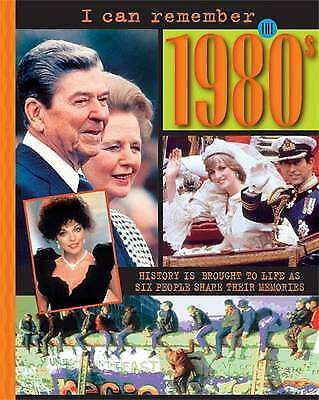
I Can Remember The 1980s by Sally Hewitt Educational School Text Book
0 notes
Text

/ Ken Regan, Joan Baez and Bob Dylan backstage on the Rolling Thunder Revue Tour, 1975
489 notes
·
View notes
Text
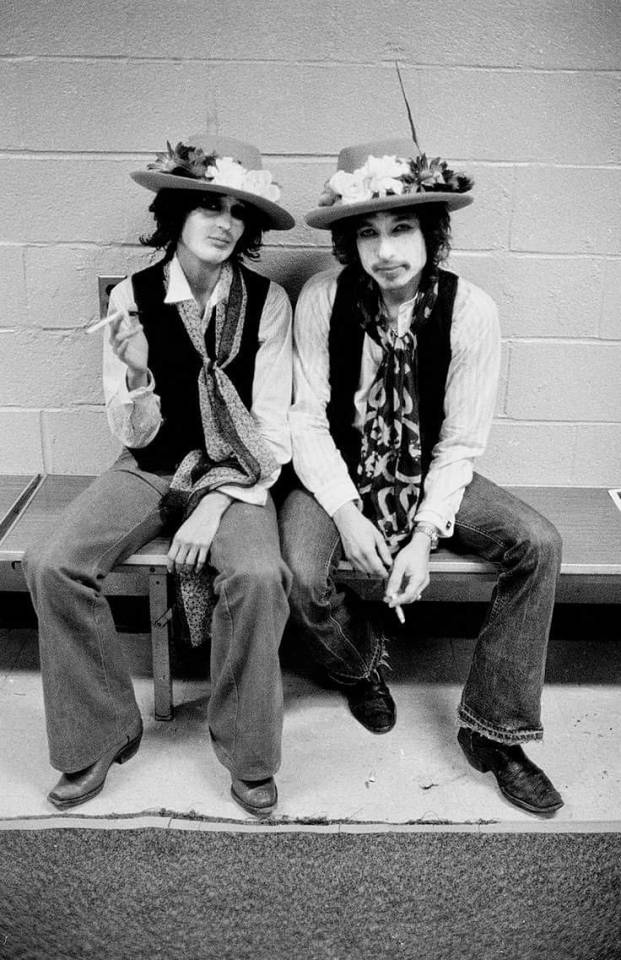
“In a little hilltop village
They gambled for my clothes
I bargained for salvation
And she gave me a lethal dose
I offered up my innocence
And I got repaid with scorn
‘Come in’, she said, ‘I'll give ya
Shelter from the storm.’”
Photo of Joan Baez and Bob Dylan backstage on the Rolling Thunder Revue tour, by Ken Regan (1975)
32 notes
·
View notes
Text
Week ending: 4 November 1954
The end of 1954 is gradually approaching - I hadn't noticed, but some of these "weeks" have actually been two weeks, as I assume there was a week where nothing new came into the charts, just some position changes. I wonder if this is a pattern that will keep going or not into the present?
Rain, Rain, Rain - Frankie Laine and the Four Lads (peaked at No. 8)
The title and artist here rhyme in a pleasing fashion. I can only imagine the radio presenters gleefully announcing "And now, Rain, Rain, Rain by Frankie Laine." Or maybe that's just a me thing...
Then it starts, and it's clear to me that this is an immediate improvement on There Must Be a Reason. There's energy, there's attitude, there's a bit of fun. And of course, Frankie's still in religion mode, but it seems like he's finally worked out how to make a religious song fun!
The song's basically about the story of Noah, building an ark and then - you guessed - it rained, rained, rained, just as God has promised. There's also a strong emphasis on the sinful nature of the antediluvian word (now there's a word I didn't expect to have to use on this project) with talk of how God "Beheld the evil of the sinful man; / Declared that he would destroy the land". We even get a bit of metaphor telling us how "The ringing of the saw cried "Judgement" / The ringing of the hammer cried "Sinner repent". Plus, the ending is also quite fire and brimstone, with God saving Noah and giving him the rainbow sign, but then promising (expanding on what the Bible actually says) that "It won't be a rain but fire next time". It's a properly sinister moment in a song that seems geared to scare its listeners straight.
The stylings of it all seem to be drawing very heavily from traditionally black gospel music, from the explicitly gospel subject matter, to some of the vocal stylings and pronunciations of words. None of the artists involved come from this kind of background - Laine was a Catholic, and the Four Lads were a white Canadian quartet of singers, but they apparently did a whole album of vaguely gospel-tinged music.
It's also - rather unexpectedly - an unmistakably rock and roll-tinged song. Which might be a first? I didn't expect it to be Frankie Laine who got that honour, but the song is dripping in rock and roll, from the organ chords after the opening "Rain, rain, rain", to the double bass, to the 12-bar blues progression near the end (if I'm not mistaken). The gospel influences are just as strong, but then again, that was often the case in early rock and roll, so... eh, good enough.
I feel like the real story here is possibly about how it's profitable for singers like Frankie Laine to take the musical material and stylings of black artists (who are popular, but still aren't getting a regular look-in in these charts) and to repackage it for white listening audiences. Plenty of ink has been spilled on this already, and I'm not adding anything, but I figured it ought to be mentioned here - in a patter I imagine we'll only be seeing more of in the weeks to come, this song is steeped in black creativity, even if it's officially coming from the mouth of Frankie Laine and four whitebread natives of Toronto.
If I Give My Heart to You - Joan Regan (3)
Well, this is a British cover of Doris Day's American original, and it seems to have done marginally better chart-wise than Doris' version. I... don't have much to say about that, actually. They're remarkably similar, to the point where you wonder why a cover was needed.
I wonder sometimes with these covers if people maybe just wanted a copy of the song, and didn't care so much about the artist? Either that, or licencing / royalties made it more economically feasible to do lots of covers, and these were just raw cash-grabs? Or it was hard to get ahold of American songs, so a British artist would just cover them? I guess there wasn't any obvious way of checking you'd got the right version of a song, so if you'd just heard Doris' on the radio a few times and liked it, you'd probably be pretty pleased with this, too, especially since Joan doesn't change much.
Often these British covers seem to be a little lower-rent than their American counterparts, but this is an exception to that rule. It's dripping with strings - if not necessarily to the extent of Doris' version - and, in what I think might actually be an improvement on the original, we get a full brass band solo, which is gloriously rich in its harmonies for the brief little bit we hear it in. The muted trumpet vamping over the end of the track is also delightful. Really, the instrumentation here is spot-on, I enjoy it more than I expected to.
Well, there you go. Two very serviceable songs than I in no way would have listened to before starting this project. I enjoyed both, and Rain, Rain, Rain's gospel/rock and roll style in particular was like a breath of fresh air after the balladeering and novelty songs and operatically sweeping numbers we've had so far. It feels like the future, in a low-key way.
Favourite song of the bunch: Rain, Rain, Rain
0 notes
Photo
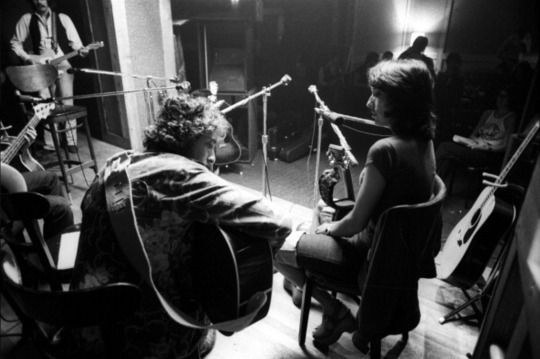
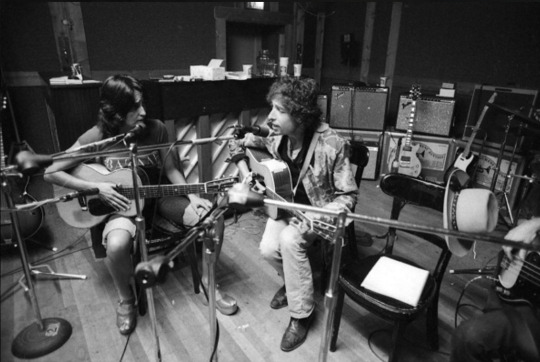
Bob Dylan & Joan Baez, Seacrest Motel, Falmouth, MA, October 29, 1975 © Ken Regan.
#Bob Dylan#Joan Baez#Baez and Dylan#Seacrest Motel#Falmouth#Massachusetts#MA#The Rolling Thunder Revue#Rolling Thunder Revue#1975#1970s#Ken Regan
155 notes
·
View notes
Text

He can’t catch a break (requested by @trans ^-^)
98 notes
·
View notes
Text

Joan Baez & Bob Dylan by Ken Regan (1975) During Rolling Thunder Revue Bangor, Me
80 notes
·
View notes
Photo

The Messenger: The Story Of Joan Of Arc (1999)
#1999#film#movie#history#The Messenger#The Story Of Joan Of Arc#Luc Besson#Vincent Regan#Buck#Andrew Birkin#John Talbot#Milla Jovovich#Joan Of Arc#Jeanne d'Arc#Hundred Years' War#Orleans#France#England#knights
3 notes
·
View notes
